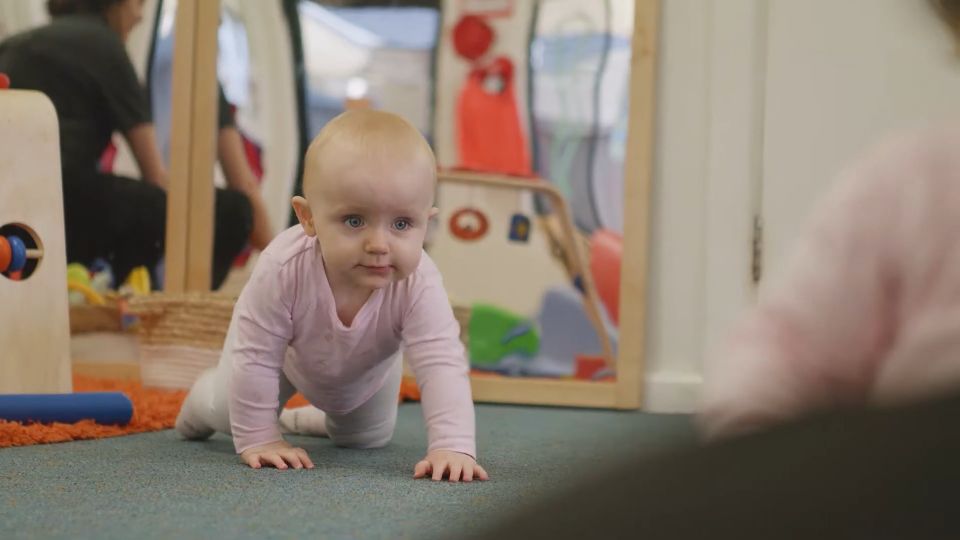
There are few things as incredible as a baby’s brain. In the first year, a baby’s brain doubles in size and forms more than 1 million new neural connections each second! Many factors — including a child’s relationships, experiences and environment — influence this incredible development. It’s an exciting time in a child’s development and forms a vital foundation for all future learning.
How do babies learn?
Play-based activities are a valuable learning technique for infants. “Playing allows babies to practice skills they’ll need as they continue to grow and develop. Babies are naturally curious, and playing enables them to experiment, explore and problem solve,” explains Jola Sung, Education Advisor at Affinity Education Group.
“In their first year, babies learn largely through their relationships with adults. Our Healthy Beginnings learning approach emphasises building secure relationships as a foundation for learning. From there, children feel safe and confident to explore, using their senses — their eyes, ears, mouth, nose and hands are their tools — to make new discoveries.”
Bright colours, sensory textures and new sounds provide endless learning opportunities for babies. Rolling, playing on the floor, climbing and crawling all help babies develop body awareness and encourage them to move independently so they can better explore their surroundings.
Babies are learning the most foundational lessons they need to discover who they are. The Early Years Learning Framework, which we implement in all Lifelong Learning Centres, is based on the fundamentals of Belonging, Being and Becoming. It recognises play-based activities as a way for our littlest learners to develop a sense of familial and community belonging, awareness of their being, and security as they grow.
What are some play-based learning activities to try?
Jola continues, “Playing comes naturally to babies, but it’s important to ensure the play is both challenging and fun! These activities don’t need to be too complicated. The most important part is that you are engaging with them and encouraging them.”
Aquafaba foam: children love to paint, mix, squish and play with aquafaba foam! Simply whisk the liquid from a can of chickpeas with a little bit of cream of tartar for a delightfully fun foam that is waste-free and child-safe.
Colourful spaghetti: playing with bright, coloured spaghetti is a fun way to engage the senses!
Water balloons: rolling, slipping and bouncing water balloons is a fantastic way to improve hand-eye coordination and motor skills.
Cellophane: scrunching and crackling, colourful and smooth, cellophane offers a rich sensory experience for babies to discover!
Balloon swat: swatting a colourful balloon and watching it float in the air is a fun way to develop visual tracking and spatial awareness skills.
Discover more about our research-driven learning approach or learn more about the amazing learning opportunities we offer our babies!
Our expert early childhood educators understand the amazing learning potential of every baby. Our Lifelong Learning approach is practised by all 200 Lifelong Learning Centres across Australia, with each centre offering high-quality, research-driven programs for children from 6 weeks to school age.
Click here to discover your closest Lifelong Learning Centre and to book a Family Tour or free Stay-and-Play session!
